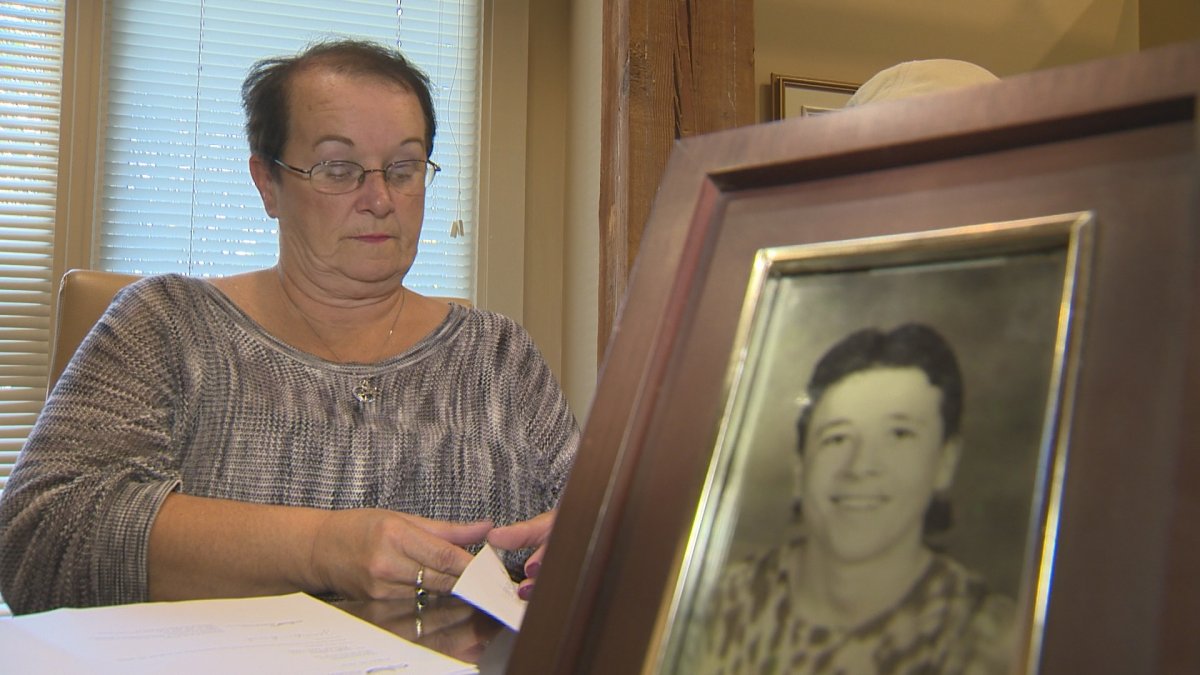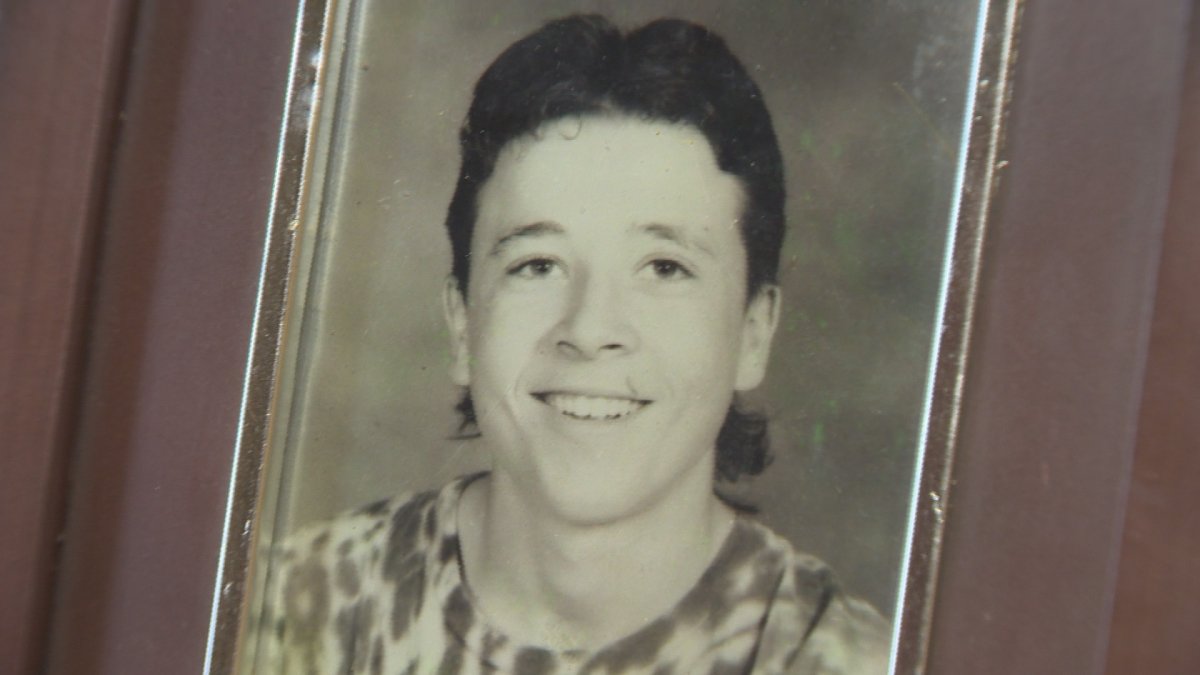Maureen Milller’s world was turned upside down 26 years ago when her son, Clayton died. For the Miller family, the nightmare still continues nearly three decades after his death.

Maureen says she and her husband, Gervase, have never believed officials when it comes to their son’s cause of death — they’ve always believed there was a cover-up involved.
“My husband and I, we believe that Clayton died in a police choke hold,” Maureen told Global News during an interview.
Clayton Miller was only 17 when his lifeless body was found in a small brook in New Waterford, N.S., on May 6, 1990. The last time the teen had been seen alive was two days prior at a party that was raided by police.
The Millers have never accepted the answers provided to them by investigators or the conclusion reached by two separate reports: that Clayton’s death was an accident.
READ MORE: Clayton Miller death was accident: review
Maureen now believes she has scientific proof to back up her claims that her son’s death wasn’t an accident, and that missing evidence may be the key to finally getting the answers she is desperately seeking.
Maureen says tissue slides taken from Clayton were sent to Brazil to be independently tested by officials working on a long-term medical study analyzing what happens to people who die from asphyxiation.
“They found that people that died from strangulation/asphyxiation … they all had emphysema,” Maureen said, noting that Clayton’s tissue slides also show emphysema.
WATCH: Findings of Clayton Miller report
Following that discovery, the Millers requested that tissue samples taken from their son’s body — called paraffin blocks — be made available for further testing.
Arrangements were made for medical officials to travel from Brazil to Halifax and use the laboratory at Dalhousie University to examine the samples — however the Miller family is facing another roadblock.
The 18 tissue blocks in question were supposed to be sent in September 2014 from the Cape Breton Regional Hospital to the officer of the Nova Scotia Medical Examiner.
Maureen and her lawyer, Ray Wagner, say they have paperwork to confirm that the transfer happened, but were informed by the Nova Scotia Department of Justice that the paraffin blocks given to the Medical Examiner actually didn’t belong to Clayton.
“If they’re not Clayton’s, why didn’t, two years ago, you send them back to the regional hospital in Cape Breton and have the right one sent?” Maureen said. “Right now, what they’re saying now is that the Nova Scotia Health Authority is incompetent.”
“Every time we look at something in this case, we’ve seen things that are just not right,” Wagner said.
“You’ve got two official departments of the province of Nova Scotia saying two entirely different things and all we wanna know is are they Clayton Miller’s paraffin blocks or not? There’s one answer, there’s not two.”
A spokesperson for Department of Justice says Dr. Matthew Bowes, the province’s Chief Medical Examiner, will not be commenting on the case because it is currently under review by the Nova Scotia Health Authority.
Public still offering support for Miller family
The case has been in the spotlight since it happened in 1990 and public support for the family continues to grow.
A Facebook page called “Justice for Clayton Miller” now has more than 10,000 members, some of whom have taken a keen interest in the case, including Stephen McNenly.
“What’s most disturbing to me at this stage is that it continues to be ignored,” McNenly said.
He got involved with the Miller family nearly two years ago to try and help them piece together what happened to Clayton and get answers to a mystery that’s captured the community.
McNenly says after reviewing all the evidence in the case that the Miller family has access to, he believes there are inconsistencies.
“Investigative bodies have claimed to have looked at it as recently as last year and say he died of hypothermia, when the doctor who did two autopsies on May 7, 1990 on Clayton’s body came away stating without any doubt that he died of asphyxiation, and he sent a detailed letter to an RCMP investigator, who sent him a letter stating that he consider hypothermia as a possibility,” McNenly said.
The Millers say they have written to Jody Wilson-Raybould, the Minister of Justice and Attorney General for Canada to help them.
They are also not ruling out legal action as a next step in the family’s quest for answers.
As for how Maureen’s been able to stay strong enough to continue her fight for justice all these years, her response is simple:
“Clayton deserves it. A wrong was done to him and he deserves justice,” she said.
Requests for comment on the Clayton Miller case from the Cape Breton Regional Police and the Nova Scotia Health Authority have not yet been returned.
- Canada’s most wanted list: Toronto suspect in fatal shooting at No. 1
- Man acquitted in Tina Fontaine murder found dead, says her aunt
- Gas station clerk stabbed several times during violent attack at Ultramar in Montreal
- Canadians should expect politicians to support right to bail, Virani’s office says






Comments